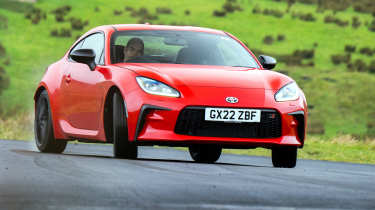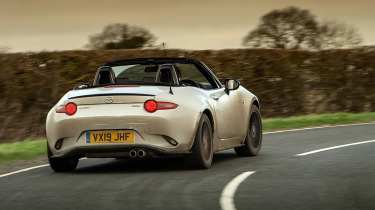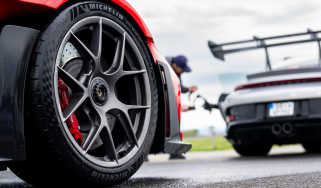Sports cars on top in the latest car resale value charts
Sports cars may be getting more expensive, but they’re also among the slowest-depreciating cars, according to new data

If you’ve been patiently waiting for the price of used Alpine A110s to come down to something more attainable, don’t hold your breath, as the latest forecast data shows that Alpine is one of the slowest-depreciating makers on the market – and that sports cars as a whole hold onto their value better than any other type of car.
It’s similarly good news for brands like Morgan, Lotus, Aston Martin, and Porsche, all of which produce fast cars with slow depreciation, while other types of vehicles that hold their value well over time include large SUVs, and premium hatchbacks.
> 2024 Best sports cars - icons and modern day heroes
The data comes from VIP Data, and is divided into the categories used by our sister site Auto Express to define different market segments. The figures show that after three years or 36,000 miles, the average sports car holds on to 52.38 per cent of its on-the-road price, while Alpine, Morgan, and Lotus cars specifically raise that figure to more than 57 per cent, while Porsche is close to the sports car average with 52.65 per cent across its entire range.
It’s a sign that these cars are just as desirable for used buyers as they are for new ones – and that the relative scarcity of new sports cars on the market is keeping demand high long after the first owner has had their fill.
That’s all the more relevant when sales figures are relatively low too. It’s little wonder that cars from a brand like Alpine, which has made only a little over 20,000 A110s in total, and of those only a fraction have come to the UK, hold their value. With the average sports car now being quite expensive – high-end models considerably outnumber more affordable cars like the Mazda MX-5 and Toyota GR86 – buyers are only too eager to snap them up as used cars instead, however slowly they might depreciate.

After sports cars, large SUVs dominate the retained value list, holding onto just over 52 per cent after three years or 36,000 miles. Premium hatchbacks aren’t far behind either on 50.04 per cent – in stark contrast to the 43.76 per cent of their non-premium counterparts. So if you’re looking for a set of family wheels, perhaps a relatively upscale BMW 1-series or Mercedes A-class is a better idea than a Peugeot 308 or a Kia Ceed, even if the monthly payment is a touch higher.
Like large SUVs, small and medium-sized models do well too, while you’ll also find supercars mid-table, retaining nearly 48 per cent of their value – though these are for slightly more mainstream models (if you’ll excuse the contradiction in terms) such as the Audi R8 and Porsche 911s, with the likes of Ferrari, Lamborghini and McLaren not represented in the data.
Right down towards the bottom of the table meanwhile are executive saloons, compact execs like the BMW 3-series, and luxury cars, all of which average only 42-44 per cent of their original value after three years.
So if you’ve been wondering whether to buy that new sports car, then you can rest easy that it at least won’t shed its value too quickly when you take the plunge. And if you have your eye on a high-end luxury car like a 7-series or S-class, perhaps give it a few years for someone else to take the depreciation hit.







